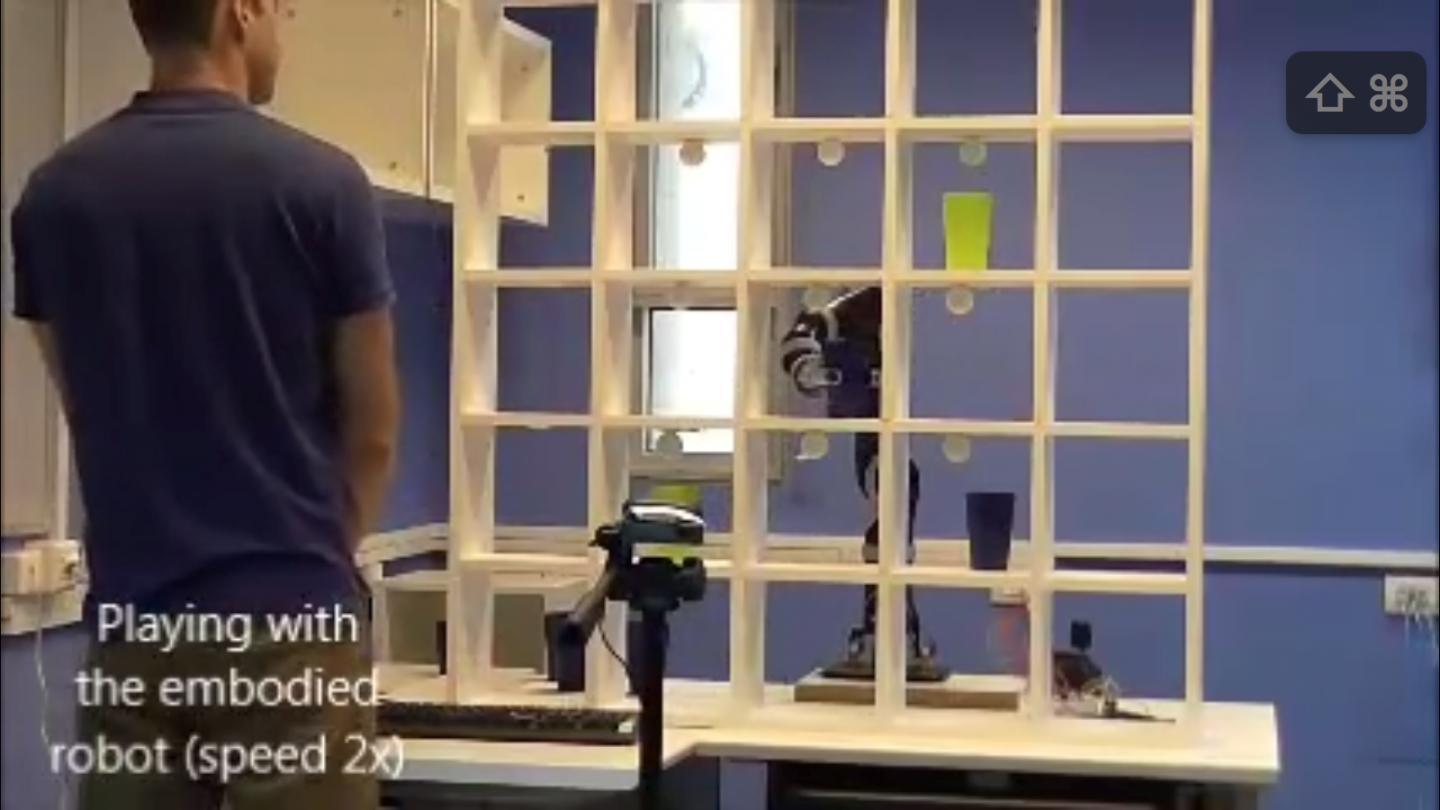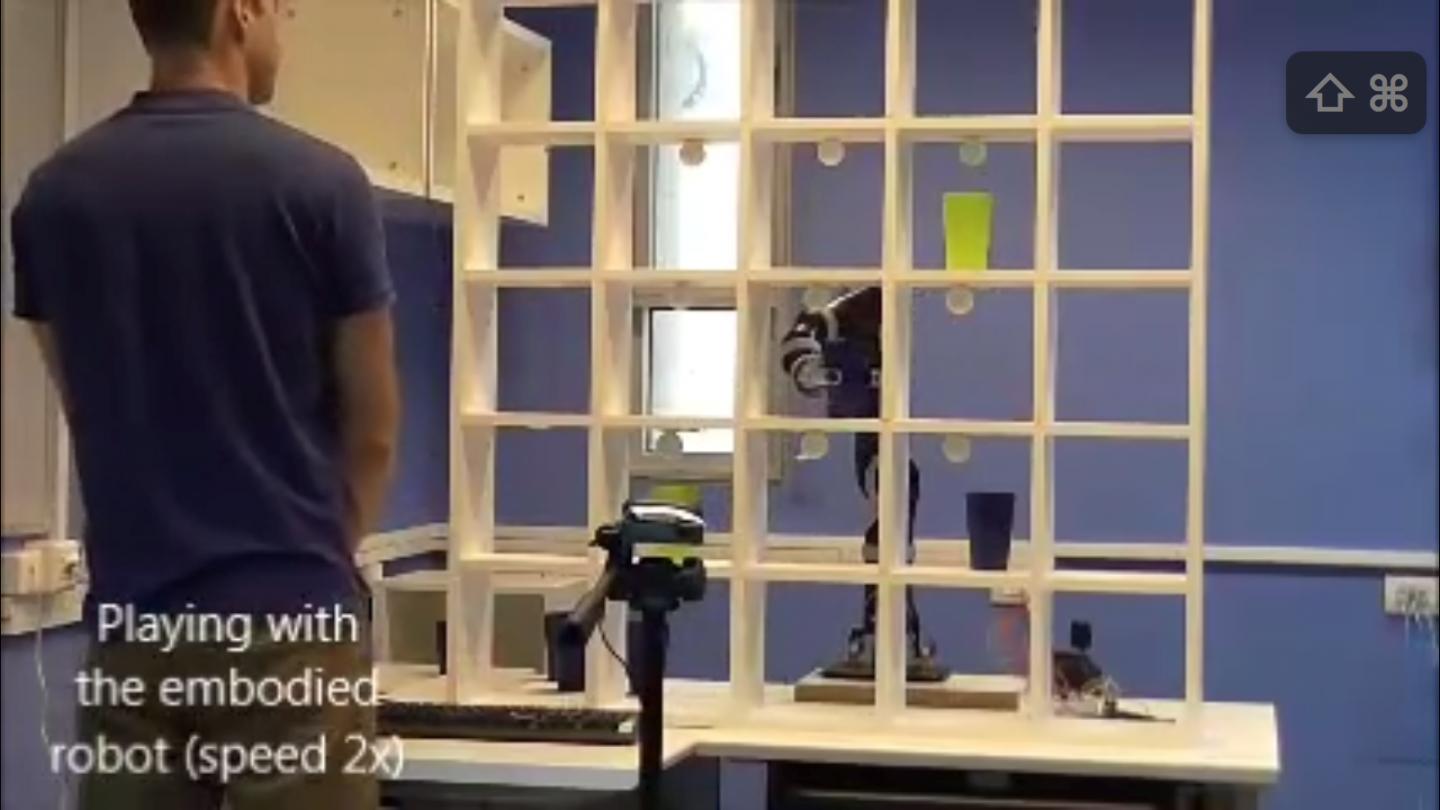
Credit: Ben-Gurion University
NEW YORK…May 3, 2018 – Researchers from Ben-Gurion University of the Negev (BGU) in Beer-Sheva, Israel have demonstrated for the first time the feasibility of a robotic system that plays Tic Tac Toe with rehabilitation patients to improve real-life task performance.
The interdisciplinary research team designed a game with a robotic arm to simulate "3D Functional Activities of Daily Living"–actions people undertake daily, like drinking from a cup, that are often a focus of rehabilitation. Click here to watch the video.
Designing a social robot to help rehabilitate a patient is a new field which requires much research and experimentation in order to determine the optimal conditions. The research was published in Restorative Neurology and Neuroscience.
"Playing Tic Tac Toe with a set of cups (instead of X's and O's) is one example of a game that can help rehabilitate an upper limb," says Dr. Shelly Levy-Tzedek of BGU's Department of Physical Therapy, and Zlotowski Center for Neuroscience. "A person can pick up and place many cups while enjoying a game and improving their performance of a daily task."
Researchers compared study participants' motivation to play with a robot vs. a set of computer-controlled LED lights to determine the importance of interacting with an actual physical robot.
They tested the system on 62 healthy right-handed people from two age groups: 40 young adults around 25 years old (23 women and 17 men) and 22 older adults around 75 years old (10 women and 12 men). Both groups preferred the robotic system over the LED lights system. The older adults said it was more human-like, while the young adults reported the robot "was more interesting, fun and appealing."
When asked which partner they would prefer to play two additional games with, both groups selected the robotic system over the lights. However, when asked to play an additional 10 games, the older adults still preferred the robot, but the young group preferred to play against the LED lights system.
"Some of the young adults complained that the robot moved too slowly; therefore, they preferred the quicker system when asked to play many more games," says Dr. Levy-Tzedek. "That indicates a need to personalize the speed of the robot to each participant."
An unexpected finding was that the robot's movement influenced human movement. Both young and older adults moved significantly slower when they played with the slower robot compared to the faster lighting system.
These results indicate that people are willing to continue to interact with a robotic device in a social-like setting, and that embodiment plays an important role, which is a positive sign for the future of such systems. Now that they have established feasibility, the researchers recommend testing their system on rehabilitating stroke victims.
###
The research was led by Dr. Danny Eizicovits, a BGU postdoctoral fellow co-advised by Dr. Shelly Levy-Tzedek of the BGU Department of Physical Therapy and the Zlotowski Center for Neuroscience, Prof. Yael Edan of the Department of Industrial Engineering and Management, and Prof. Iris Tabak of the Department of Education.
The research was partially supported by the Helmsley Charitable Trust, BGU's Agricultural, Biological and Cognitive Robotics Initiative and the Marcus Endowment Fund, as well as the Rabbi W. Gunther Plaut Chair in Manufacturing Engineering. Additional funding was provided by the Brandeis Leir Foundation, the Brandeis Bronfman Foundation, the Promobilia Foundation, the Borten Family Foundation, the Planning and Budgeting Committee I-CORE Program, and The Israel Science Foundation (ISF) (1716/12) through the Learning in a Networked Society (LINKS) center and grants number 535/16 and 2166/16.
About American Associates, Ben-Gurion University of the Negev
American Associates, Ben-Gurion University of the Negev (AABGU) plays a vital role in sustaining David Ben-Gurion's vision: creating a world-class institution of education and research in the Israeli desert, nurturing the Negev community and sharing the University's expertise locally and around the globe. As Ben-Gurion University of the Negev (BGU) looks ahead to turning 50 in 2020, AABGU imagines a future that goes beyond the walls of academia. It is a future where BGU invents a new world and inspires a vision for a stronger Israel and its next generation of leaders. Together with supporters, AABGU will help the University foster excellence in teaching, research and outreach to the communities of the Negev for the next 50 years and beyond. Visit vision.aabgu.org to learn more.
AABGU, which is headquartered in Manhattan, has nine regional offices throughout the United States. For more information, visit http://www.aabgu.org.
Media Contact
Andrew R Lavin
[email protected]
516-353-2505
http://www.aabgu.org
Related Journal Article
http://dx.doi.org/10.3233/RNN-170802





